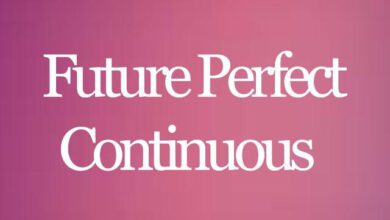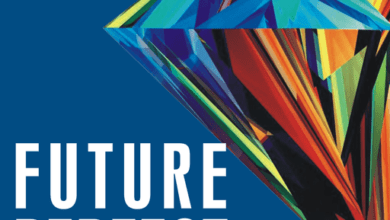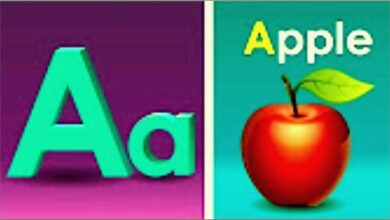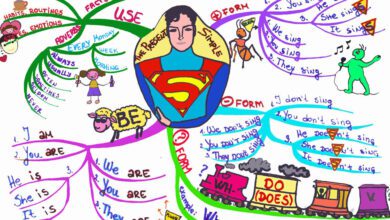شرح السؤال المذيل Question Tag بالتفصيل
شرح السؤال المذيل Question Tag بالتفصيل
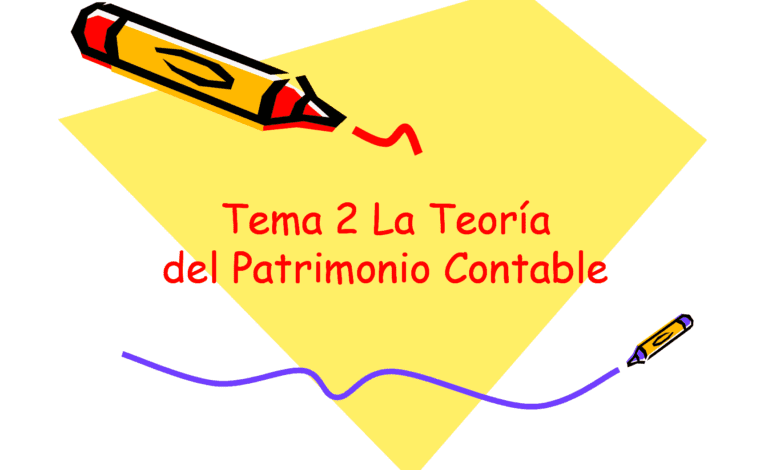
تكملة لدروس الانجليزية هنقدم لكم اليوم درس تعليمي وهو شرح السؤال المذيل Question Tag بالتفصيل وده درس مهم جدا فى الانجليزية .
شرح السؤال المذيل Question Tag بالتفصيل
شرح السؤال المذيل Question Tag ، السؤال المذيل هو عبارة عن سؤال قصير يستخدم في اللغة الانجليزية المتحدثة ويضاف الي نهاية الجملة . المتحدثين يستخدمون هذا النوع من الأسئلة للتأكد من صحة المعلومات أو للحصول على موافقة .
التكوين Formation
1- سؤال منفي Negative Tag + جملة مثبتة Affirmative Sentence
2- سؤال مثبت Affirmative Sentence + جملة منفية Negative Sentence
*** إذا كانت الجملة منفية يكون السؤال مثبتا .
*** إذا كانت الجملة مثبتة يكون السؤال منفيا .
لاحظ الأتي *** Note the following
( 1 ) Answer expected Negative Tag Affirmative Sentence
Yes , I do . don’t you ) ? You like coffee )
Yes , she is . isn’t she) ? Soha is her )
( 2 ) Answer expected Affirmative Tag Negative Sentence
No , I don’t . do you ) ? You don’t like coffee )
No, she isn’t . is sh ) ? Soha isn’t her )
لاحظ الأتي *** Note the following
1- ؟ He is a teacher , isn’t he
2- ؟ He isn’t a teacher , is he
3- ؟ We are students , aren’t we
4- ؟ We aren’t students , are we
5- ؟ You don’t like coffee , do you
6- ؟ He plays football , doesn’t he
7- ؟ We play football , don’t you
8- ؟ They played football , didn’t they
9- ؟ You have been in Jordan , haven’t you
10- ؟ She will help us later , won’t she
11- ؟ I am right , aren’t I
12-؟ Don’t make any noise , will you
13-؟ Let’s sit in the garden , shall we
14-؟ This is your book , isn’t it
15- ؟that is your bag , isn’t it
16- ؟ These are yours , aren’t they
17- ؟ Those are yours , aren’t they
18- ؟ There aren’t any problems , are they
19- ؟ Everything is wrong today , isn’t it
20- ؟ Everyone played well , didn’t they
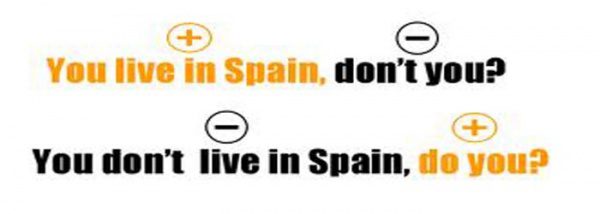
** نستخدم الأسئلة المذيلة غالبا لكي نفتح محادثات
إنه يوم جميل . أليس كذلك ؟ —— ?It’s a lovely day, isn’t it
الجو ليس دافئ جدا هنا . أليس كذلك ؟ —— ?It’s not very warm here , is it
** وكذلك نستخدم الأسئلة المذيلة عندما نتوقع أن يتفق معنا الشخص الذي نوجه له السؤال
You’re coming too , aren’t you ? Yes , we are
أنتم ستحضرون أيضا . أليس كذلك ؟ نعم ، سنحضر .
They’re not staying much longer , are they ? No, they aren’t
هم لن يمكثوا وقتا أطول . أليس كذلك ؟ لا ، لن يمكثوا .
** يتكون السؤال المذيل من فعل مساعد أو ناقص + فاعل ( ضمير يشير إلي الفاعل في الجملة ) .
** السؤال المذيل يكون بمعني : ” أليس كذلك ؟ ” .
** بعد جملة مثبتة نستخدم سؤال مذيل منفي لكي نسأل إذا كان الشخص يتفق مع الجملة الخبرية .
It’s lovely today , isn’t it ? It certainly is
الجو جميل اليوم . أليس كذلك ؟ بالتأكيد هو جميل .
She’s has gone home , hasn’t she ? Yes , she has
هي ذهبت إلي البيت . أليس كذلك ؟ نعم ، هي ذهبت .
Bob likes this weather , doesn’t he ? Yes , he does
بوب يحب هذا الجو . أليس كذلك ؟ نعم ، هو يحبه .
They went home , didn’t they ? Yes , they did
هم ذهبوا إلي البيت . أليس كذلك ؟ نعم ، هم ذهبوا
You’ll be on holiday next week , won’t you ? . Yes, I will
أنت ستكون في أجازة الإسبوع القادم ز أليس كذلك ؟ نعم ، سأكون .
** لا حظ أنه في السؤال المذيل المنفي نضع n’t بعد الفعل المساعد أو الناقص ثم ضمير يشير إلي الفاعل في الجملة.
** بعد جملة منفية نستخدم سؤال مذيل مثبت لكي نسأل إذا كان الشخص يتفق مع الجملة الخبرية .
هو ليس ودود جدا . أليس كذلك ؟ He isn’t very friendly , is he ?
He wasn’t waiting at home for me , was he ? لم يكن ينتظرني في البيت ؟ أليس كذلك ؟
You haven’t met my sister Jean , have you ? أنت لم تقابل أختي جين ؟ أليس كذلك ؟
أنت لا تحب البيض . أليس كذلك ؟ You don’t like eggs , do you ?
الكلب لا يستطيع أن يخرج . أليس كذلك ؟ The dog can’t go out , can it ?
*** لاحظ ما يلي :
** الصيغة الشاذة من I’m عندما تكون سؤال مذيل منفي :
أنا سأذهب معك . أليس كذلك ؟ ——— ? I’m going with you , aren’t I
أنا سأبقي أيضا. أليس كذلك ؟ ———— ? I’m staying too , aren’t I
** بعد had better نستخدم سؤال مذيل ب had
? I had better answer these letters , hadn’t I
من الأفضل أن أرد علي هذه الخطابات. أليس كذلك ؟
** بعد would rather نستخدم سؤال مذيل ب would
? You would rather sit in the garden , wouldn’t you
من الأفضل لك أن تجلس في الحديقة. أليس كذلك ؟
** بعد الاقتراحات ب let’s وبعد العروض نستخدم سؤال مذيل ب shall
? Let’s have some fresh air , shall we
دعنا نشم بعض الهواء الطازج . أليس كذلك ؟
** بعد صيغة الأمر نستخدم سؤال مذيل ب will أو would أو can أو could
? Open the door , will you ? / would you ? / can you
افتح الباب . أليس كذلك ؟
** بعد جملة مثبتة نستطيع أن نستخدم سؤال مذيل مثبت عندما نكون قد اكتشفنا حالا أو تذكرنا بعض المعلومات ونريد أن نسأل أو نراجع إذا كانت صحيحة .
أنت رأيت جنيفر أمس . أليس كذلك ؟ ————— ? You saw Jennifer yesterday , did you
ملاحظات:-
*** الجمل التي تحتوى على كلمات
مثل :
No / none / no one / seldom / hardly
Scarcely / nothing / nobody / neither / never
تعامل كأنها جمل منفية ويتبعها Tag مثبت :-
1-؟ Nothing was said , Was it
2- ؟ Ali hardly ever goes to coffee shop , Does he
السؤال المذيل في الانجليزية هو سؤال قصير كثيراُ ما يلحق بأواخر الجمل في الكلاام و أحياناُ في الكتابات الغير فصحي (أو الغير رسمية). يعني هذا السؤال ” أليس كذلك؟ ” , و أستخدامه شائع في النجليزية.
“Question Tags” are the small questions that often come at the ends of sentences in speech, and sometimes in informal writing. They mean something like: “Am I right?” or “Do you agree?” They are very common in English.
> يصاغ هذا السؤال غالباُ من الفعل المساعد / الناقص حسب زمن الجملة يليه ضمير الفاعل للفاعل في الجملة. و يكون في حالة الجملة المثبته منفياُ و العكس.
Examples : – امثلة
؟ They should go, shouldn’t they
؟ We are going soon, aren’t we
؟ have: Joan has finished the job, hasn’t she
؟ Present: You are taking notes, aren’t you
? Past: You were taking notes, weren’t you
? Ahmad can swin, can’t he
? You cannot play the piano, can you
? He’d left early, hadn’t he
? It’s stopped raining, hasn’t it
? You like apple, don’t you?
? The meeting is at ten, isn’t it
هنا السؤال أتي به is رغم أن الزمن هو المضارع البسيط
؟ Shady gave you the money, didn’t he
لاحظ ان نعم نعم او لالا هى اجابة على جملة منفية
You aren’t going out today, are you
Yes (yes, I’m going out)
No (No, I’m not going out.)
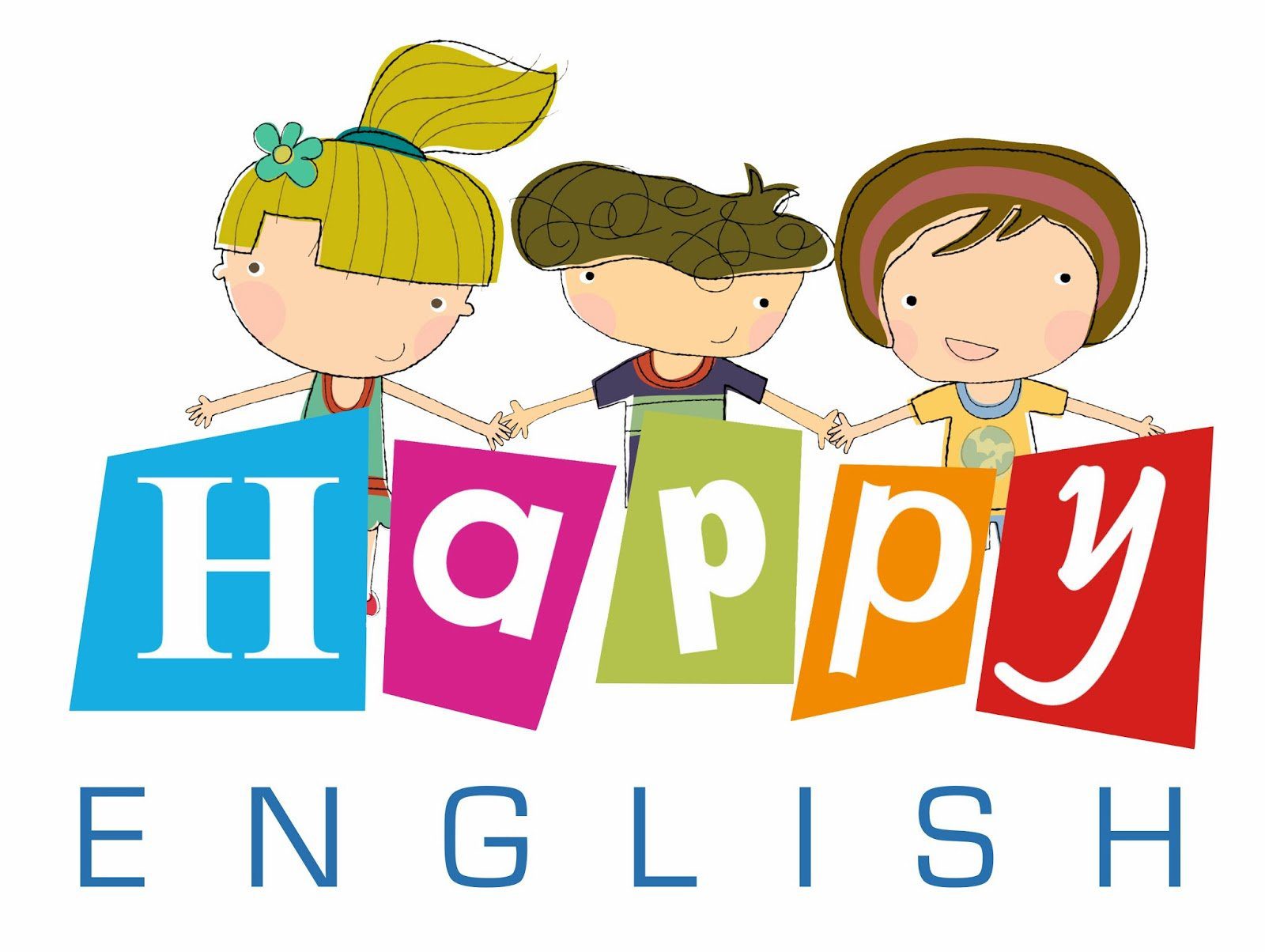
>حالات خاصة في السؤال المذيل Some special cases : ـ
1 – الفعل have
يعتبر فعل أساسي إذا جاء في المضارع البسيط في اللهجة الأمريكية, و لذلك يستخدم do في السؤال المذيل. بينما يعتبر فعل مساعد في هذه الحالة ( الفعل الاساسي في الجملة) و يستخدم have في السؤال المذيل
بمعنى فى الامريكية اذا استخدم have يكون السؤال المذيل ب do
اما البريطانية اذا استخدمنا have يكون السؤال المذيل ب have
Have in American English is like any other main verb; it obliges us to
use do in the question tag. In British English, main verb have is just like helping verb have.
American : They have a problem with that, don’t they ———– لديهم مشكلة مع هذا اليس كذلك
British : They have a problem with that, haven’t they ————— لديهم مشكلة مع هذا اليس كذلك
2 – الكلمات النافية negative words : -ـ
يستخدم سؤال مثبت بعد الجمل التي يأتي بها كلمات نفي مثل; never, no, nobody, hardly, scarcely and little
Examples : –
You never say what you are thinking, do you? not; don’t you
? There is little we can do about it, is there
لاحظ تكوين السؤال المذيل في هذه الجمل : –
– I’m right, aren’t I (= am I not)? – not
تستخدم won’t you مع الأمر خاصة في اللهجة البريطابية لجعله أكثر أدباُ
و لكن بعد الأمر المنفي نستخدم ? will you
? Do not forget, will you
– و يمكن أستخدام will/would/can/could you? للطلب بأدب
? Give me a hand, will you
? Open a ******, could you
– تستخدم can’t you للتعبير عن نفاذ الصبر (طفح الكيل)
? Shut up, can’t you
– ? Let’s have a party, shall we
? There weren’t any problems, were there
?There’s some more chairs upstairs, aren’t thee
– Nobody, some body, everybody, no one
? Nobody went to school yesterday, did they
– nothing, everything
? Nothing can happen, can it
– ? I think he is American, isn’t he
? I don’t think it’ll rain, will it
? I suppose you are hungry, aren’t you
3 -الاسئلة التي لا تخالف حال الجملة Same way tags
إذا كان السؤال المذيل ياتي في جملة تكون تأكيد لكلام ذكر من قبل, لا نقلب الأثبات نفي و العكس
? You think you are the smartest be here, don’t you
– يمكن هنا أيضا أقتراح شئ ثم أتباعه بالسؤال المذيل لمعرفة ما إذا كان الأقتراح أو التخمين صحيح
? You father is at home, is he
? That’s the last bus, is it
There is still a point about intonation which is to be added soon, but I’m tired now
This Topic has been prepared from more about 6 books. I hope you like it
Qustion Tag : –>
Complete the following sentences with the suitable question tag : –
1 – You cannot swim,…………….?
2 – Ahmed can swim, ……………?
3 – Shady is at home, ……………..?
4 – Ramy’s book is new, ……………?
5 – It’s raining heavily,………………?
6 – It’s stopped raining,………………?
7 – He’d left early, ………………..?
8 – You’d like to have tea, ………………..?
9 – You’d better leave early, ………………?
10 – You’d rather study abroad, ………………?
11 – I’m late, ……………….?
12 – You speak English, …………………?
13 – You never come by bus, ……………….?
14 – He came late, …………………?
15 – He read the report, …………….?
16 – You can hardly speak German, ………………..?
17 – Let’s have lunch, …………….?
18 – Let us go out, ……………..?
19 – Open the book, …………….?
20 – Don’t speak, …………….?
21 – This is your book, ……………..?
22 – You have a car, ………………?
23 – He had lunch, ………………..?
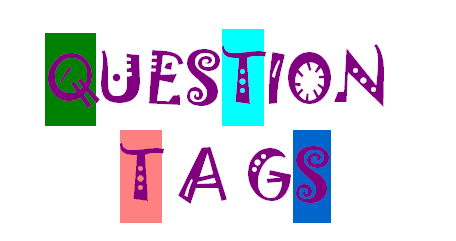
>>>>>>>>>>>>>>>>>>>>>>>>>>>>>>>>>>>>>>>>>>>>>
Answers : –
1 – can you?
2 – can he?
3 – isn’t he?
4 – isn’t it?
5 – isn’t it?
6 – hasn’t it?
7 – hadn’t he?
8 – wouldn’t you?
9 – hadn’t you?
10 – wouldn’t you?
11 – aren’t I? / am I not?
12 – don’t you?
13 – do you?
14 – didn’t he?
15 – didn’t he?
16 – can you?
17 – shall we?
18 – won’t you?
19 – won’t you?
20 – will you?
21 – isn’t it?
22 – don’t you?
23 – didn’t he?
حـالات خـاصـة :
*** I’m تحول الى aren’t
? I’m a good student, aren’t I
*** لكن I’m not ليست شاذة
? I’m not late, am I
*** تعامل needn’t على انها فعل مساعد فتستخدم فى سؤال التذييل كما هى
? She needn’t travel, need she
*** تعتبر need to فعل اساسى فنسأل عنها بــ do
? I need to study hard , don’t I
*** اذا جاءت الجملة بها ( مصدر +d’…..) فيكون السؤال المذيل بــ Would
? He’d rather stay here, wouldn’t he
*** اذا جاءت الجملة بها ( ….’d + p.p ) أو ( ….. d’ + better ) يكون السؤال المذيل بــ had
? We’d better go, hadn’t we
***يكون سؤال التذييل مثبت اذا جاء فى الجملة أداوت نفى وهما Hardly / Never
? She never comes late, does she
? We hardly answer the difficult questions , do we
*** فى سؤال التذييل نضع they اذا بدأت الجملة بــ ( Every / Some / No + noun )
? Someone is here, aren’t they
? Everyone speaks loudly , don’t they
? No body deserves the prize, do they
? No one is here, are they
*** تحول Nothing الى itفى السؤال المذييل
? Nothing can stop us , can it
*** اذا جاءت There فى الجملة تبقى كما هى فى سؤال التذييل
? There is a new , isn’t there
***فى الأمر المثبت والمنفى نستخدم will you فى سؤال التذييل
? Study hard , will you
? Don’t forget your prayers , will you
***Let us تعاملمثل كل جمل الطلب والأمر
وتذيل بــ ـwill you
? Let us leave now , will you
***أما Let’s التى تعبر عن الاقتراح فتزيل بــ Shall we
? Let’s play , shall we
